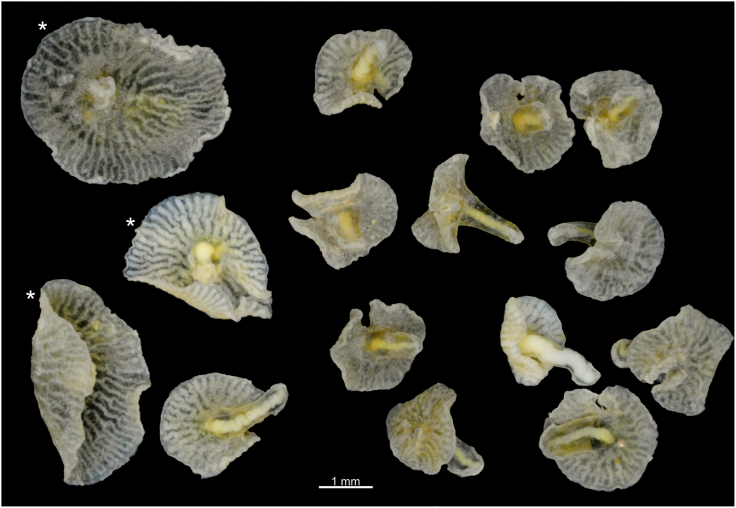Dendrogramma: Two Deep Sea 'Mushroom-Like' Species Discovered off Australian Coast

Two mushroom-shaped organisms that scientists believe are related to an extinct 600 million-year-old life-form have been discovered in the ocean off the coast of Australia.
A study of the two creatures, entitled Dendrogramma, New Genus, with Two New Non-Bilaterian Species from the Marine Bathyal of Southeastern Australia (Animalia, Metazoa incertae sedis) – with Similarities to Some Medusoids from the Precambrian Ediacara, was carried out by researchers from the University of Copenhagen, Denmark, and has been published in online journal PLOS ONE.
The unusual animals were given the name Dendrogramma and have been separated into two species, Dendrogramma enigmatica and Dendrogramma discoides.
At present, Dendrogramma cannot be sectioned into any phylum, a scientific way of grouping related organisms together by a common ancestor, but scientists believe that they could be linked to an early life-form known as the Ediacara fauna.
Dr Jorgen Oleson, an associate professor at the University of Copenhagen, said: "Two species are recognised and current evidence suggests that they represent an early branch on the tree of life, with similarities to the 600 million-year-old extinct Ediacara fauna".
Ediacara fauna are believed by some to be an early example of a failed attempt at multi-cellular life.
Dendrogramma are two centimetres long and made up of an outer skin and an inner stomach, with a dense layer of non-living, jelly-like substance known as mesoglea in between.
The body consists of an inflexible, flattened disk and a stalk with a small mouth at the end of it. It is believed to feed on microorganisms by catching them in a mucus secreted from around the sides of its mouth.
Researchers found the Dendrogramma among a collection of other organisms that were pulled up from ocean depths of 400 and 1,000m (1,312 and 3,280ft) in 1986 and now a new attempt may be made to find more of them.
© Copyright IBTimes 2025. All rights reserved.





















